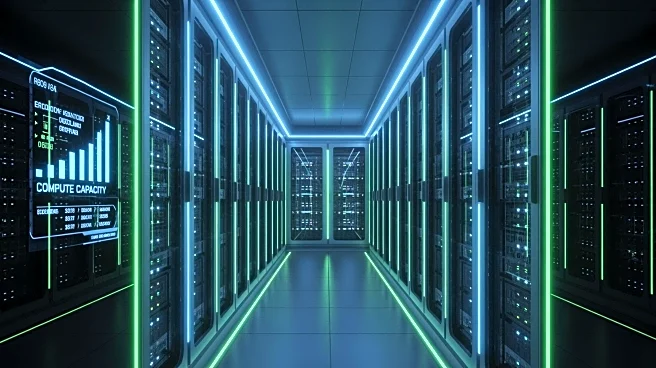What's Happening?
The AI industry is undergoing a significant transformation, shifting focus from software optimization to industrial logistics. This change is driven by the increasing importance of physical systems such as silicon, power, and capital in AI development.
A recent collaboration between OpenAI and Broadcom to co-develop custom AI accelerators highlights this shift. The AI sector faces constraints in semiconductor supply, which is becoming a bottleneck for scaling AI capabilities. Despite global renewable energy capacity growth, reliable power generation remains a challenge for AI data centers. The industry is also experiencing a concentration of economic power in semiconductor design and fabrication, with companies like TSMC, Samsung, and Intel leading the way.
Why It's Important?
The industrialization of AI signifies a new era where strategic strength is measured by industrial resilience rather than software velocity. This shift has implications for the global AI economy, as semiconductor supply and energy availability become critical factors. The concentration of power in the semiconductor industry could impact AI development and deployment, influencing economic and geopolitical dynamics. As AI infrastructure projects require significant capital investment, the ability to secure financing and manage industrial constraints will determine competitive advantage. This transformation underscores the need for companies to adapt to the evolving landscape and leverage industrial capabilities to drive AI innovation.
Beyond the Headlines
The industrialization of AI is not only a technological shift but also a geopolitical and economic one. As nations view compute capacity as a strategic asset, data centers and chip facilities are increasingly seen as critical infrastructure. This perspective could lead to new regulatory frameworks and policies that treat AI compute as a utility or national security concern. The integration of AI into industrial systems also raises questions about sustainability and the environmental impact of large-scale compute operations. Companies that master the industrial layer of AI will define the next decade of technology leadership, shaping the future of AI and its role in society.
















